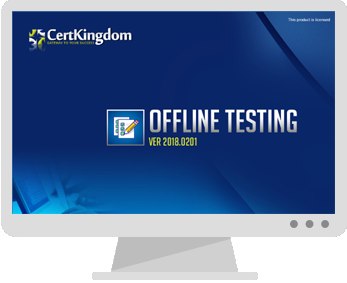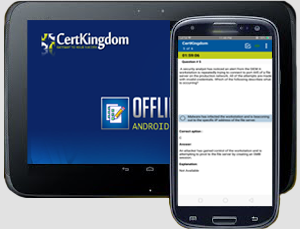Exam: FCSS_NST_SE-7.4

|
|||||||||||||||||||||||||||
Exam series: FCSS_NST_SE-7.4
Number of questions: 40
Exam time: 75 minutes
Language: English
Product version: FortiOS 7.4
Status: Available
Exam details: exam description
Network Security Support Engineer
Certification
This exam is part of the Fortinet Certified Solution Specialist - Network
Security certification track. This certification validates your ability to
administer, monitor, and troubleshoot Fortinet network security solutions.
Visit the Cybersecurity Certification page for information about certification
requirements.
Exam
The FCSS - Network Security 7.4 Support Engineer exam evaluates your
knowledge of, and expertise with, Fortinet solutions in enterprise security
infrastructure environments.
The exam tests important knowledge and skills required to diagnose and
troubleshoot enterprise firewall solutions in FortiOS 7.4.
Once you pass the exam, you will receive the following exam badge:
Audience
The FCSS - Network Security 7.4 Support Engineer exam is intended for
network and security professionals who are responsible
for the administration and support of an enterprise security infrastructure
composed of many FortiGate devices.
Exam Description
Exam Details
Exam name FCSS - Network Security 7.4 Support Engineer
Exam series FCSS_NST_SE-7.4
Time allowed 75 minutes
Exam questions 40 multiple-choice questions
Scoring Pass or fail. A score report is available from your
Language English
Product version FortiOS 7.4
Exam Topics
Successful candidates have applied knowledge and skills in the following areas
and tasks:
* System Troubleshooting
* Troubleshoot FortiGate-to-FortiGate Security Fabric issues
* Troubleshoot automation stitches
* Troubleshoot resource problems using built-in tools
* Troubleshoot connectivity problems using built-in tools
* Troubleshoot different operation modes for FGCP HA clusters
* Authentication
* Troubleshoot local and remote authentication
* Troubleshoot Fortinet Single Sign-On (FSSO) issues
* Security Profiles
* Troubleshoot FortiGuard issues
* Troubleshoot web filtering issues
* Troubleshoot the intrusion prevention system (IPS)
* Routing
* Troubleshoot routing packets using static routes
* Troubleshoot OSPF to route the enterprise traffic
* Troubleshoot BGP to route the enterprise traffic
* VPN
* Troubleshoot IPsec IKE version 1 and 2 issues
Training Resources
The following resources are recommended for attaining the knowledge and
skills that are covered on the exam. The recommended training is available as a
foundation for exam preparation. In addition to training, you are strongly
encouraged to
have hands-on experience with the exam topics and objectives.
* FCSS - Network Security 7.4 Support Engineer course and hands-on labs
* FCSS - Enterprise Firewall 7.2 course and hands-on labs
* FCP - FortiGate 7.4 Administrator course and hands-on labs
* FortiOS 7.4—Administration Guide
* FortiOS 7.4—New Features Guide
* FortiOS 7.4—CLI Reference
Experience
* 3 years of experience with networking
* 3 years of experience with network security
* Minimum of 1 year of hands-on experience with FortiGate
Examination Policies and Procedures
The Fortinet Training Institute recommends that you review the exam policies
and procedures before you register for the exam.
Access important information on the Fortinet Training Institute Policies page,
and find answers to common questions on the FAQ page. Questions?
If you have more questions about the NSE Certification Program, contact us
through the Fortinet Training Institute Helpdesk
FCSS_NST_SE-7.4 Brain Dumps Exam + Online / Offline and Android Testing Engine & 4500+ other exams included
$50 - $25 (you save $25)
Buy Now
QUESTION 1
Consider the scenario where the server name indication (SNI) does not match
either the common name (CN) or any of the subject alternative names (SAN) in the
server certificate.
Which action will FortiGate take when using the default settings for SSL
certificate inspection?
A. FortiGate uses the SNI from the user's web browser.
B. FortiGate closes the connection because this represents an invalid SSL/TLS
configuration.
C. FortiGate uses the first entry listed in the SAN field in the server
certificate.
D. FortiGate uses the ZN information from the Subject field in the server
certificate.
Answer: C
QUESTION 2
Exhibit.
Refer to the exhibit, which contains partial output from an IKE real-time debug.
Which two statements about this debug output are correct? (Choose two.)
A. Perfect Forward Secrecy (PFS) is enabled in the configuration.
B. The local gateway IP address is 10.0.0.1.
C. It shows a phase 2 negotiation.
D. The initiator provided remote as its IPsec peer ID.
Answer: C, D
QUESTION 3
Exhibit.
Refer to the exhibit, which shows the output of a diagnose command.
What can you conclude about the debug output in this scenario?
A. The first server provided to FortiGate when it performed a DNS query looking
for a list of rating servers, was 121.111.236.179.
B. There is a natural correlation between the value in the FortiGuard-requests
field and the value in the Weight field.
C. FortiGate used 64.26.151.37 as the initial server to validate its contract.
D. Servers with a negative TZ value are less preferred for rating requests.
Answer: B
QUESTION 4
Refer to the exhibit, which shows the output of a policy route table entry.
Which type of policy route does the output show?
A. An ISDB route
B. A regular policy route
C. A regular policy route, which is associated with an active static route in
the FIB
D. An SD-WAN rule
Answer: A
QUESTION 5
Exhibit.
Refer to the exhibit, which shows a FortiGate configuration.
An administrator is troubleshooting a web filter issue on FortiGate. The
administrator has configured
a web filter profile and applied it to a policy; however the web filter is not
inspecting any traffic that is passing through the policy.
What must the administrator do to fix the issue?
A. Disable webfilter-force-off.
B. Increase webfilter-timeout.
C. Enable fortiguard-anycast.
D. Change protocol to TCP.
Answer: A
QUESTION 6
Which statement about IKEv2 is true?
A. Both IKEv1 and IKEv2 share the feature of asymmetric authentication.
B. IKEv1 and IKEv2 have enough of the header format in common that both versions
can run over the same UDP port.
C. IKEv1 and IKEv2 use same TCP port but run on different UDP ports.
D. IKEv1 and IKEv2 share the concept of phase1 and phase2.
Answer: B
Buy Complete
Certainly, here's a rewritten version of your text:
Packiam Vijendran 1 months ago - Malaysia
Passed the exam yesterday, 95% of the question were from this site. Note: Pay
more attention to all the community discussions on each question, instead of the
answers provided by the examtopics and I strongly suggest to get the contributor
access.
upvoted 4 times
Javier Cardaba Enjuto 2 months, 1 week ago - Spain
Excellent pre-exam session tool
upvoted 2 times
Palanisamy Arulmohan 1 months, 1 week ago - USA
I passed today, 94 questions asked and 99% of them were in this dump.
3 labs: BGP (as-override), HSRP, OSPF (without network statement)
upvoted 4 times
peppinauz 3 months, 2 weeks ago
I pass my exam, dump is valid about 90-95%. review the community answers!!
upvoted 6 times
Oberoi Ankit3 months, 3 weeks ago - USA Texas
Passed exam today dump still accurate. almost all the questions are here, some
are overcomplicated or incomplete on the site,
upvoted 4 times
logged members Can Post comments / review and take part in Discussion
Certkingdom Offline Testing Engine Simulator Download
Prepare with yourself how CertKingdom Offline Exam Simulator it is designed specifically for any exam preparation. It allows you to create, edit, and take practice tests in an environment very similar to an actual exam.
Supported Platforms: Windows-7 64bit or later - EULA | How to Install?
FAQ's: Windows-8 / Windows 10 if you face any issue kinldy uninstall and reinstall the Simulator again.
Download Offline Simulator-Beta
Certkingdom Testing Engine Features
- Certkingdom Testing Engine simulates the real exam environment.
- Interactive Testing Engine Included
- Live Web App Testing Engine
- Offline Downloadable Desktop App Testing Engine
- Testing Engine App for Android
- Testing Engine App for iPhone
- Testing Engine App for iPad
- Working with the Certkingdom Testing Engine is just like taking the real tests, except we also give you the correct answers.
- More importantly, we also give you detailed explanations to ensure you fully understand how and why the answers are correct.
Certkingdom Android Testing Engine Simulator Download
Take your learning mobile android device with all the features as desktop offline testing engine. All android devices are supported.
Supported Platforms: All Android OS EULA
Install the Android Testing Engine from google play store and download the app.ck from certkingdom website android testing engine download

Certkingdom Android Testing Engine Features
- CertKingdom Offline Android Testing Engine
- Make sure to enable Root check in Playstore
- Live Realistic practice tests
- Live Virtual test environment
- Live Practice test environment
- Mark unanswered Q&A
- Free Updates
- Save your tests results
- Re-examine the unanswered Q & A
- Make your own test scenario (settings)
- Just like the real tests: multiple choice questions
- Updated regularly, always current




